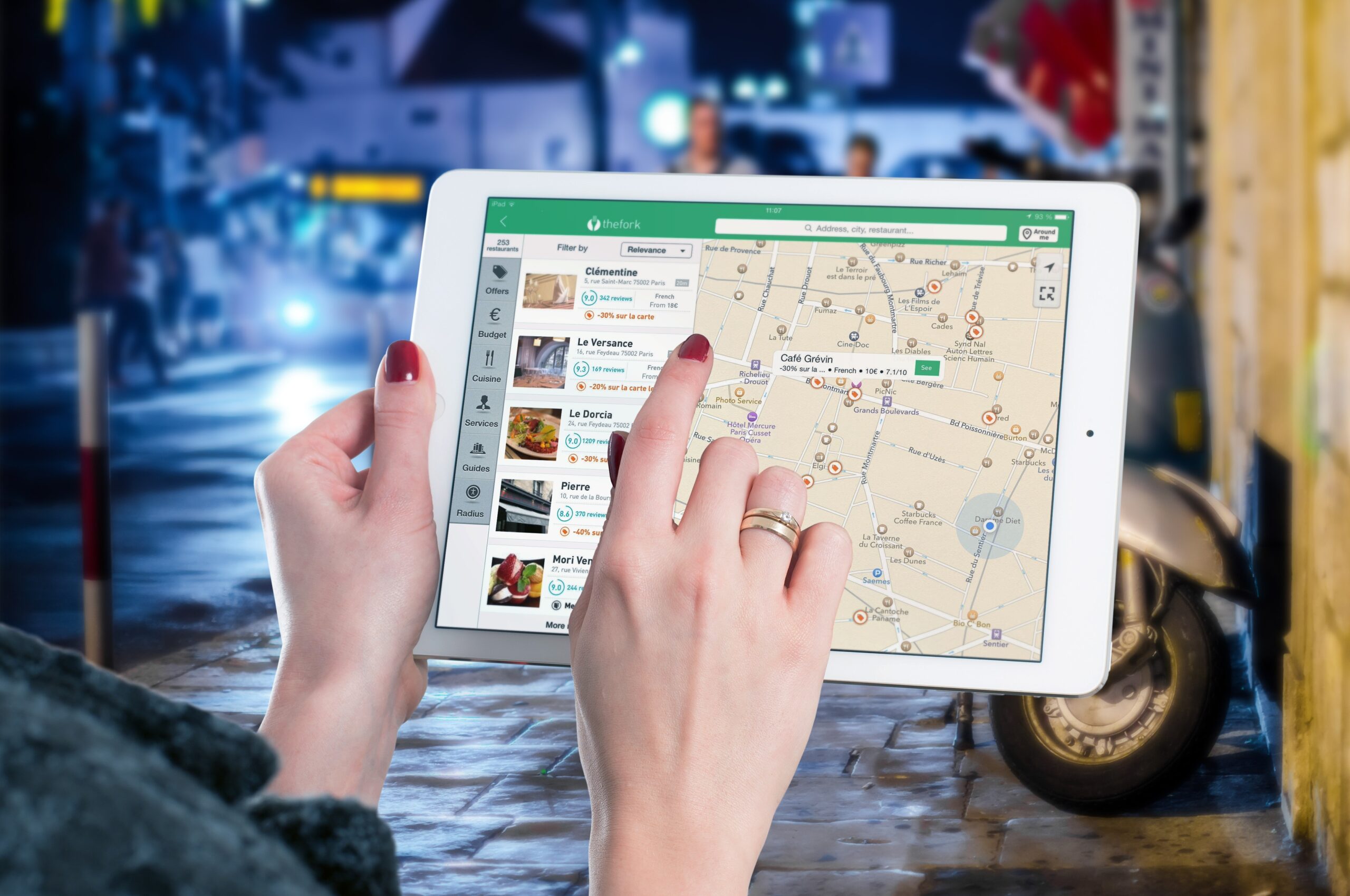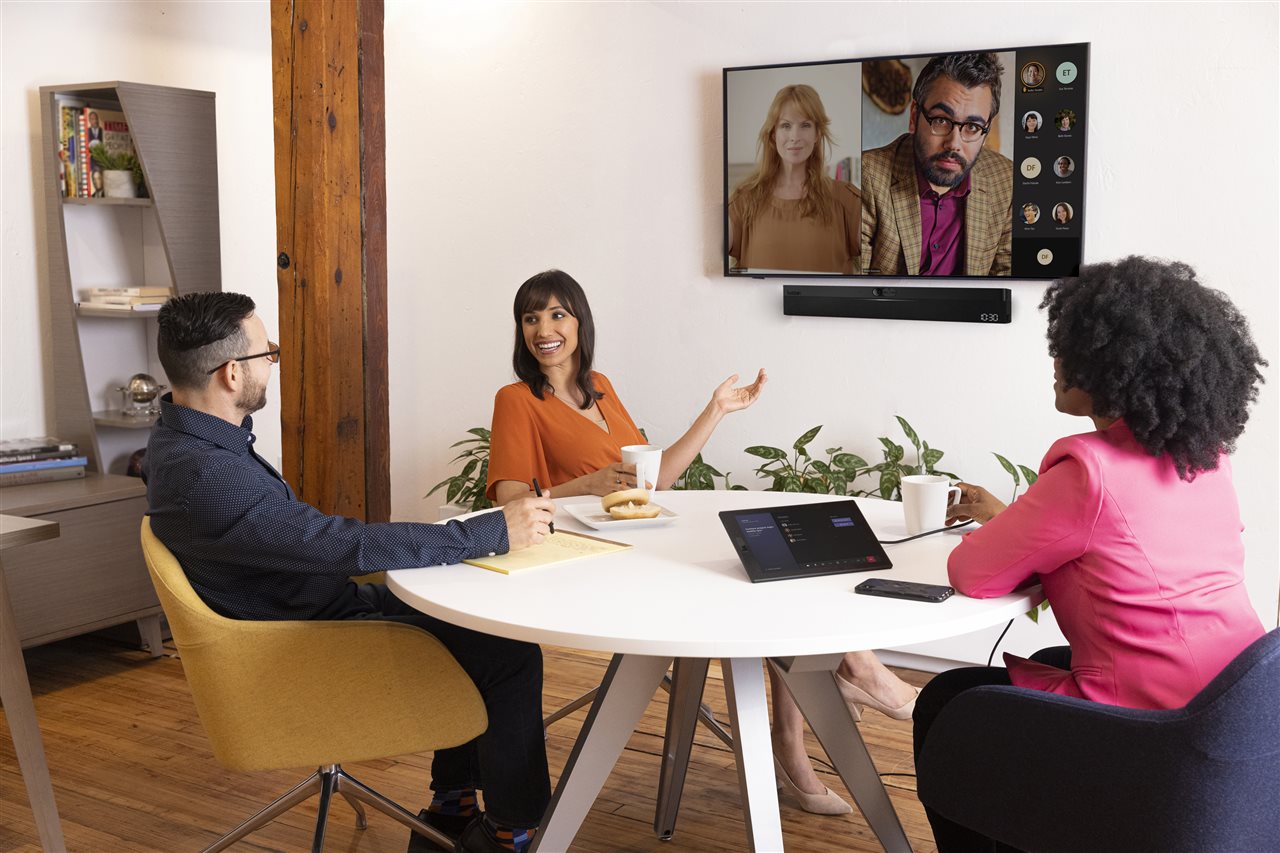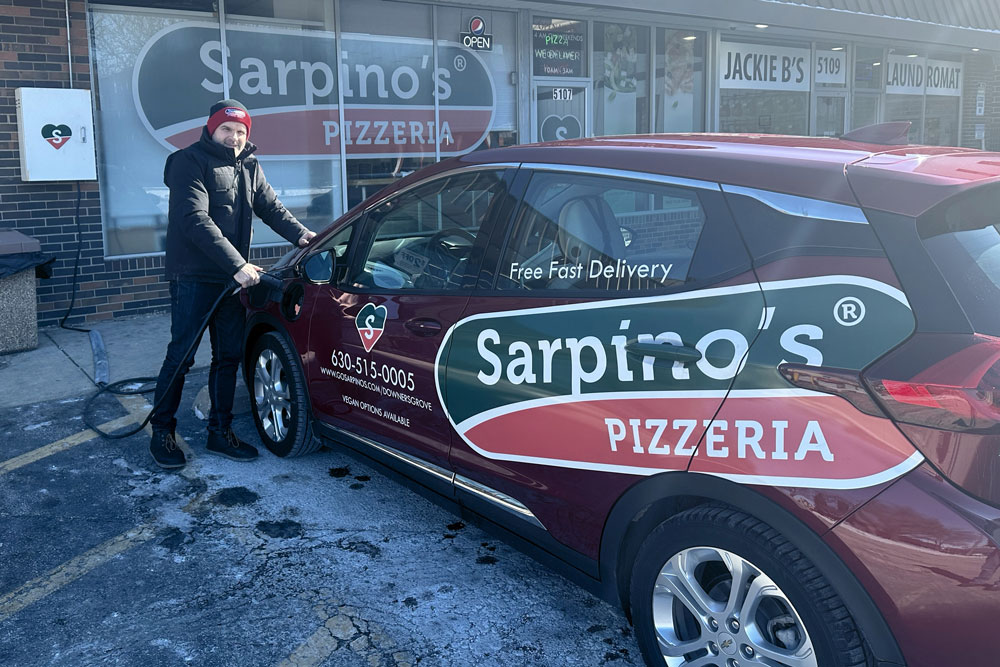Photo by Pixabay:
In the competitive theater of the food industry, where eateries vie for the spotlight, the significance of the location is magnified. It’s a substantial lever that can significantly influence the wheel of success and sustainability, setting the tempo for the customer influx, revenue streams, and, ultimately, the longevity and legacy of the restaurant.
The Perfect Spot: Navigating the Quest for an Ideal Restaurant Location
In the gastronomic realm, the allure of a captivating menu and the charm of stellar customer service are seminal ingredients for success. Yet, the quest for the right location stands as a cornerstone. The time-honored mantra, “location, location, location,” resonates profoundly within the restaurant industry’s bustling corridors. A prime retail spot is akin to a beacon that amplifies visibility, magnetizes the right demographic, and guarantees a steady stream of foot traffic, forming a triumvirate of advantages. As you embark on the adventurous hunt for that perfect retail location for your restaurant, here are some pivotal factors to consider, each serving as a compass to guide you through the myriad of retail landscapes:
“Demographics: The Compass in Navigating Your Restaurant’s Location Quest”
The demographic landscape of a location is akin to a compass when navigating the turbulent seas of the restaurant industry. A well-informed understanding of the local demographics helps make an informed decision and tailors your restaurant’s brand to resonate with the community. Here’s a deeper look into how demographic research can guide your restaurant location scouting:
Identifying Your Target Audience:
Every restaurant has a target audience: families, young professionals, students, or fine diners. Researching the demographics of different areas helps find a location where your target audience predominantly resides or works. Use census data, local government reports, or online demographic tools to understand the residents’ age, income levels, and lifestyle.
Social Characteristics:
A location’s social fabric can significantly impact your restaurant’s popularity and relevance. Understanding the cultural, ethnic, and social dynamics helps tailor your restaurant’s theme, menu, and service to meet the expectations and preferences of the community. For instance, a locality with a vibrant nightlife may be the perfect spot for a trendy bar or a late-night eatery.
Economic Landscape:
Economic stability and the spending power of the residents are crucial factors to consider. An area with higher disposable income may be more suitable for a fine dining or upscale restaurant. On the other hand, a middle-income or student-dominated area might be a better fit for a casual diner or a fast-food establishment.
Aligning Your Brand:
Your restaurant’s brand should resonate with the local demographics. A menu with organic, healthy, and vegetarian options might fare well if the area is health-conscious. Conversely, a family-oriented community might appreciate a restaurant with a kid-friendly menu and a cozy ambiance.
Customizing Offerings:
Demographic insights allow for customization of offerings to meet the local demand better. This could extend to not just the menu but also the hours of operation, the style of service, and even the price point.
Market Demand Analysis:
Conducting a market demand analysis can provide a clearer picture of the existing demand for certain types of cuisine or dining experiences. It also helps identify market gaps that your restaurant could fill.
Community Engagement:
Engaging with the local community through surveys or community events can provide valuable firsthand insights into the preferences and expectations of your potential customers.
Competitor Analysis:
A thorough demographic analysis also involves looking at the customer base of existing competitors. Understanding who they cater to and how well they are doing can provide insights into market saturation and opportunities for differentiation.
By meticulously studying the demographic terrain, restaurateurs can significantly mitigate the location risks, align their brand more closely with community preferences, and tailor their offerings to meet their target audience’s needs and desires. It’s a proactive approach that can set the foundation for a restaurant’s enduring success and community relevance.
“Visibility and Accessibility: The Twin Pillars of Restaurant Location Strategy”
The mantra of “seeing is dining” often holds in the restaurant business. A restaurant’s visibility and accessibility are critical factors that can significantly impact its patronage and, by extension, its success. Here’s an expanded insight into how these twin pillars shape the attractiveness of a restaurant’s location:
Visibility: The First Impression
Street Presence: A restaurant with a strong street presence on a bustling street or main road can easily catch the eye of passersby. The exterior aesthetics, signage, and overall ambiance should be enticing enough to spark curiosity and invite spontaneous visits.
Online Visibility: In this digital age, a restaurant’s online visibility is as crucial as its physical presence. Ensure your restaurant is easily locatable on maps and review sites, with an appealing virtual tour and high-quality images to entice potential diners.
Local Landmarks: Near local landmarks or a well-known shopping district can bolster visibility. Locals and tourists often flock to well-known areas, providing a steady stream of potential customers.
Accessibility: The Bridge to Your Door
Parking Facilities: Ample parking space is a significant convenience for diners, especially in busy urban areas. A location with a spacious parking lot or nearby parking facilities can be a massive draw.
Public Transport Links: Proximity to subway stations, bus stops, or other public transportation hubs can significantly increase accessibility. It opens the door to a broader spectrum of customers who may need private transportation.
Pedestrian Access: An area with safe and comfortable pedestrian access encourages foot traffic. Well-maintained sidewalks, pedestrian crossings, and a pleasant streetscape can make the walk to your restaurant an enjoyable experience.
Ease of Entry and Exit: The ease with which customers can enter and exit the restaurant premises, including driveways, entrances, and exits, contribute to the overall accessibility.
Integrating Visibility and Accessibility
Signage and Wayfinding: Effective signage and wayfinding systems can enhance visibility and accessibility. Clear, attractive signage that can be easily spotted from a distance, coupled with directional signs, can guide potential customers to your restaurant.
Local Partnerships: Partnering with nearby businesses or attractions can enhance visibility and accessibility. Shared parking facilities, joint marketing efforts, or special discounts for customers of a neighboring business can create a symbiotic relationship that benefits all parties involved.
Technology Aids:
Mobile Apps: Utilizing mobile apps for reservations and order placements can also improve accessibility. Apps can provide directions, show parking options, and even offer a virtual tour of your restaurant, giving customers the information they need to access your location quickly.
Local Regulations and Compliance:
Ensuring compliance with local regulations regarding accessibility, including provisions for disabled individuals, is not only a legal requirement but also a demonstration of inclusivity, which can attract a broader customer base.
A restaurant’s location, seen from the street or found online, intertwined with the ease of getting there, forms the first chapter of a diner’s experience. Investing time in finding a location that scores high on visibility and accessibility can set a strong foundation for attracting a steady flow of customers and achieving long-term success in the competitive restaurant landscape.
“Foot Traffic: The Lifeline of Your Restaurant’s Retail Location”
High foot traffic is a boon, but ensure it’s the right kind of traffic that matches your target demographic.
Observe the area at different times of the day to gauge the consistency of foot traffic.
Foot traffic, the stream of pedestrians passing by a location, is often considered the lifeline of retail businesses, including restaurants. The sheer volume of people walking by can significantly impact a restaurant’s visibility and, consequently, its patronage. However, not all foot traffic is created equal. Here’s an in-depth exploration of the importance of foot traffic and how to analyze it effectively when scouting for your restaurant’s location:
Quality Over Quantity:
Target Demographic Match: High foot traffic is advantageous, but what matters more is whether the individuals passing by match your target demographic. For instance, a family-friendly diner may benefit from a location near schools or family-oriented establishments. At the same time, a high-end bistro may find success near luxury shopping districts or business centers.
Consumer Behavior: Understanding the behavior of pedestrians in the area can provide insights into their dining preferences. For instance, an area with many hurried commuters may be suitable for a quick-service restaurant or a coffee shop.
Timing is Everything:
Day-Part Analysis: Observing foot traffic at different times of the day can help assess the consistency of potential customer flow. Morning traffic may benefit breakfast joints, while evening traffic may favor restaurants or bars.
Weekday vs. Weekend: The foot traffic pattern may vary between weekdays and weekends. Understanding these patterns can help in anticipating busy times and planning operations accordingly.
Surrounding Attractions:
Event Venues and Attractions: Locations near event venues, theaters, or other attractions can experience surges in foot traffic before and after events. Assessing the schedule and popularity of these venues can provide a clearer picture of potential customer flow.
Retail Synergy: Being near complementary retail businesses can boost foot traffic. For instance, a location near a popular retail shopping area can bring in shoppers looking for a meal break.
Accessibility and Walkability:
Pedestrian-Friendly Infrastructure: Well-maintained sidewalks, pedestrian crossings, and other walkability features encourage foot traffic. Assessing the pedestrian infrastructure can provide insights into the ease with which pedestrians can access your restaurant.
Seasonal Variations:
Weather Impact: Weather conditions can significantly impact foot traffic. Understanding the seasonal variations in foot traffic can help plan marketing and operational strategies accordingly.
Data-Driven Insights:
Foot Traffic Analytics: Utilizing foot traffic analytics tools can provide data-driven insights into the volume and behavior of pedestrians in a given area. These tools can provide invaluable information for making an informed decision on location selection.
Community Engagement:
Local Events and Markets: Participating in or hosting community events can temporarily boost foot traffic and increase local awareness of your restaurant.
Safety and Security:
A safe and secure environment encourages more foot traffic. Assessing the area’s safety, lighting, and general environment during different times can provide insights into its attractiveness to pedestrians.
Foot traffic analysis is a blend of quantitative assessment and qualitative understanding of consumer behavior and preferences. By meticulously evaluating the foot traffic and ensuring a good match with your target demographic, you can significantly enhance the chances of your restaurant’s success in a chosen retail location.
“Size and Layout: Crafting the Blueprint for Your Restaurant’s Success”
A restaurant’s spatial dimensions and layout are like the blueprint architects and builders rely on to erect a sturdy, functional, and aesthetically pleasing structure. Similarly, the right size and layout are instrumental in ensuring a restaurant’s seamless operation, customer satisfaction, and overall success. Here’s an expanded discourse on the importance of size and configuration in selecting a restaurant’s retail location:
Space Allocation:
Kitchen Area: The kitchen is the heartbeat of a restaurant. It requires sufficient space for equipment, preparation areas, storage, and a smooth flow of staff movement. The size of the kitchen should align with your restaurant’s operational needs and the menu complexity.
Dining Area: The dining area should accommodate enough seating to meet your business projections while ensuring a comfortable and pleasant dining experience. Adequate space between tables, comfortable seating, and a pleasing ambiance are crucial for customer satisfaction.
Other Functional Areas: Allocate space for crucial areas like restrooms, storage, administrative offices, and waiting areas. Each site should be adequately sized to meet its function without compromising the overall layout.
Local Building Codes Compliance:
Health and Safety Codes: Compliance with local health and safety codes is mandatory. These codes cover ventilation, sanitation, fire safety, and other critical factors that ensure a safe dining environment.
Occupancy Limit: The local building codes will specify the maximum occupancy limit based on the size and layout of your restaurant. Adhering to these limits is crucial for both legal compliance and safety.
Accessibility Standards:
ADA Compliance: The Americans with Disabilities Act (ADA) mandates accessibility standards to accommodate individuals with disabilities. This includes wheelchair-accessible entrances, restrooms, and adequate maneuvering space within the restaurant.
Inclusive Design: Beyond legal compliance, an inclusive design that caters to a broader spectrum of customers, including older people and those with young children, can enhance the restaurant’s appeal and customer satisfaction.
Design and Aesthetics:
Theme Alignment: The layout should resonate with your restaurant’s theme. The layout should enhance the theme, whether an open kitchen design for a modern bistro or cozy private booths for a quiet, intimate dining experience.
Aesthetic Appeal: A well-designed, aesthetically pleasing layout can enhance the dining experience significantly. It can also contribute to positive reviews and customer retention.
Flexibility and Scalability:
Adaptable Layout:A flexible layout allows for adjustments to meet changing needs, such as accommodating larger groups, hosting private events, or altering the seating arrangement.
Future Expansion: If you envisage future expansion, choose a space that allows scalability without a significant overhaul.
Operational Flow:
Efficient Workflow:An efficient workflow is crucial for swift service. The layout should facilitate smooth movement between the kitchen, storage, and dining areas, reducing customer service time.
Technological Integration:
Space for Technology: Modern restaurants incorporate technology for better operations and customer experiences. Ensure your layout has provisions for POS systems, digital menu boards, and other technological integrations.
Cost Implications:
Renovation and Fit-out Costs: Assess the cost implications of modifying the space to meet your layout requirements. These costs should be factored into your budget and financial projections.
Professional Consultation:
Architects and Interior Designers: Engage with professionals who can help design a layout that meets functional, aesthetic, and compliance requirements. Combining the right size and an efficient layout is instrumental in creating a conducive environment for your patrons and staff. When executed correctly, it’s a meticulous task that lays a robust foundation for your restaurant’s operational success and customer satisfaction.
“Competition and Complementary Businesses: Balancing Rivalry and Synergy in Restaurant Location Strategy”
The neighborhood where you establish your restaurant can propel your business to new heights or lead it into a fierce battle for survival. Assessing the level of competition and identifying complementary businesses in the vicinity are critical steps in making an informed location decision. Here’s a deeper dive into how competition and complementary businesses play a vital role in the restaurant location strategy:
Competitive Landscape:
Market Saturation: An area saturated with too many eateries may spread the customer base thin, making it challenging for any restaurant to thrive. Understanding the area’s density and variety of restaurants can help gauge market saturation.
Niche Competition: If your restaurant has a unique concept or specializes in a particular cuisine, assess the presence of direct competitors offering similar fare.
Healthy Competition: A healthy level of competition can create a dining hub, attracting more food enthusiasts to the area. It can foster a culture of excellence as restaurants strive to outdo each other in quality and service.
Complementary Businesses:
Retail Synergy: Establishing near retail centers can provide a steady flow of shoppers who might stop by for a meal. The shopping and dining experience often go hand-in-hand, creating a mutually beneficial relationship.
Entertainment Venues: Locations near cinemas, theaters, or other entertainment venues can see a surge in customers before or after shows. Collaborations or promotions tied to ticket stubs could also draw customers.
Fitness Centers and Parks: If your restaurant offers healthy or organic options, being near fitness centers or parks can attract health-conscious individuals.
Collaborations and Cross-Promotions:
Joint Marketing Efforts: Engage in collaborative marketing efforts with complementary businesses to promote each other. Shared loyalty programs, discounts, or events can attract a larger customer base.
Community Events: Participating in or sponsoring community events can foster a good relationship with other local businesses and the community.
Consumer Behavior Analysis:
Shopping and Dining Trends: Understanding the area’s shopping and dining trends can help align your restaurant’s offerings and operating hours to meet local demands.
Visibility and Accessibility:
Shared Foot Traffic: Complementary businesses can share foot traffic. A customer visiting a nearby bookstore or apparel shop might grab a coffee or meal at your restaurant.
Economic Indicators:
Area Development: Future development plans for the area, such as new retail centers or residential complexes, can impact the competitive and complementary business landscape. Staying informed about local development plans can provide insights into future opportunities or challenges.
Market Research:
Surveys and Feedback: Conducting surveys or gathering feedback from local residents and businesses can provide valuable insights into the market dynamics and consumer preferences.
Networking and Local Business Associations:
Building Relationships: Building relationships with neighboring businesses can lead to referrals and collaborative opportunities, creating a supportive business ecosystem.
Regulatory Compliance:
Zoning and Licensing: Ensure the area’s zoning laws and licensing requirements are conducive to your restaurant’s operations and potential collaborations with other businesses.
Long-term Strategy:
Sustainability: Consider the long-term sustainability of the competitive and complementary business environment. Assess how changes in the area could impact your restaurant’s customer base and operations.
A strategic balance between competition and complementary business synergy can create a favorable environment for your restaurant. A thorough analysis and a proactive approach to collaborations and community engagement can significantly enhance your restaurant’s prospects for success and growth in a chosen retail location.
“Cost Analysis: Navigating the Financial Landscape of Your Restaurant’s Location”
Embarking on the restaurant business journey is both exhilarating and challenging. One of the formidable challenges is understanding the cost implications associated with your chosen location. A prudent financial analysis, covering a range of costs from rent to hidden charges, is crucial in ensuring the sustainability and profitability of your restaurant. Here’s an in-depth exploration of the cost factors and how to analyze them effectively:
Rent or Lease Costs:
Market Rates: Familiarize yourself with the prevailing market rates in the desired area. Rates can vary significantly based on location, size, and the condition of the premises.
Lease Terms: Negotiate favorable lease terms, including rent increments, lease duration, and termination clauses. A long-term lease with capped annual increases can provide cost stability.
Utilities:
Estimation: Estimate utility costs such as electricity, water, gas, and waste disposal. These estimates can be obtained from utility providers or neighboring businesses.
Energy Efficiency: Consider the energy efficiency of the building to lower utility costs. Implementing energy-saving measures can also result in savings over time.
Renovation and Fit-out Costs:
Initial Assessment: Assess the condition of the premises and the extent of renovations required to fit your restaurant’s theme and operational needs.
Budgeting: Budget for necessary renovations, including kitchen setup, dining area fit-out, and compliance with health and safety standards.
Equipment Costs: Budget for procuring kitchen equipment, furniture, point-of-sale systems, and other necessary equipment.
Maintenance: Factor in the ongoing maintenance costs to keep the equipment in good working condition.
Permit and Licensing Fees:
Regulatory Compliance: Ensure you budget for the cost of obtaining necessary permits and licenses, including liquor licenses, health permits, and building permits.
Hidden Costs:
Unexpected Expenses: Allocate a portion of your budget for unforeseen expenses such as emergency repairs or additional renovations.
Common Area Maintenance (CAM) Fees: If your restaurant is in a multi-tenant complex, be aware of Common Area Maintenance (CAM) fees covering shared space maintenance.
Insurance:
Coverage: Budget for insurance premiums to cover property, liability, and other necessary insurance coverages.
Marketing and Promotion:
Launch Campaign: Budget for marketing and promotional activities to create awareness and attract customers to your new location.
Revenue Projection:
Sales Forecasting: Conduct thorough sales forecasting to project the revenue from the location. Consider factors like foot traffic, local demographics, and competition in your projections.
Cost-Revenue Analysis:
Break-even Analysis: Conduct a break-even analysis to understand how long it would take to cover your initial investment and ongoing costs. Compare the total cost against the projected revenue to assess the potential profitability of the location.
Financial Advisory:
Professional Consultation: Engage financial advisors familiar with the restaurant industry to help budget, forecast, and analyze your chosen location’s financial implications.
Long-term Financial Planning:
Growth Projections: Consider the long-term financial implications and projections to ensure the location remains viable and profitable as your restaurant grows.
A meticulous cost analysis coupled with prudent financial planning is instrumental in making an informed decision regarding your restaurant’s location. It sets the economic foundation for your restaurant’s success and sustainability, making it a critical step in your venture journey.
“Mastering the Lease: Securing Favorable Terms for Your Restaurant’s Home”
The lease agreement is more than just a document; it’s a pivotal factor impacting your restaurant’s financial health and operational flexibility. Negotiating favorable lease terms and understanding the intricacies of the agreement are essential steps toward establishing a solid foundation for your restaurant business. Here’s a deeper dive into the realm of lease terms and conditions for aspiring restaurateurs:
Term Length:
Initial Duration: Negotiating a lease term that aligns with your business plan is crucial. A longer-term lease provides stability, while a shorter-term lease offers more flexibility.
Renewal Options: Secure options to renew the lease at predetermined conditions to avoid unexpected rent hikes or eviction at the end of the lease term.
Rent Amount and Increases:
Base Rent: Negotiate a fair base rent based on market rates, the location’s desirability, and your projected revenues.
Rent Escalations: Understand and negotiate the terms of rent escalations to ensure they are reasonable and predictable.
Common Area Maintenance (CAM) Fees:
Calculation and Cap: Understand how CAM fees are calculated and negotiate a cap to avoid unexpected increases.
Tenant Improvements:
Allowance and Approval: Negotiate a tenant improvement allowance and ensure you have the right to make necessary alterations to fit your restaurant’s needs.
Use and Exclusivity Clauses:
Operational Freedom: Ensure the lease permits the intended use of the premises as a restaurant and negotiate exclusivity clauses to prevent direct competition within the same complex or vicinity.
Assignment and Subletting:
Transferability: Secure rights to assign the lease or sublet the premises, providing flexibility for future business decisions.
Repair and Maintenance Responsibilities:
Division of Duties: Clearly define the landlord and tenant’s responsibilities for repairs and maintenance to avoid disputes.
Insurance and Liability:
Coverage Requirements: Understand the insurance requirements stipulated in the lease and ensure they are reasonable and within industry norms.
Termination Clauses:
Exit Strategy: Understand the conditions under which the lease can be terminated, including any penalties or obligations.
Dispute Resolution:
Clear Mechanisms: Ensure the lease agreement has clear mechanisms for resolving disputes, should any arise.
Legal Review:
Professional Scrutiny: Engage a legal professional with experience in commercial real estate to review the lease agreement, explain the implications of each clause, and suggest possible amendments.
Negotiation Strategy:
Informed Negotiations: Conduct thorough market research and seek professional advice to develop a negotiation strategy that aligns with your business goals and risk tolerance.
Documentation and Record-Keeping:
Transparent Documentation: Ensure all agreements, amendments, and understandings are clearly documented in the lease agreement to avoid future misunderstandings.
Long-term Implications:
Strategic Alignment: Assess the long-term implications of the lease terms to ensure they align with your strategic business goals, including potential expansions or operational changes.
A well-negotiated lease agreement, tailored to your restaurant’s unique needs and long-term business strategy, is a cornerstone of your restaurant’s operational and financial stability. The effort invested in understanding, negotiating, and securing favorable lease terms can significantly mitigate risks and pave the way for a successful and sustainable restaurant venture.
“Zoning In Navigating the Regulatory Terrain for Your Restaurant Location”
The path to opening a restaurant isn’t only about finding the perfect spot; it’s also about ensuring that the chosen location adheres to local zoning requirements. Zoning laws can significantly affect the operation of a restaurant, and understanding these laws is crucial to avoid legal complications. Here’s an expanded examination of zoning requirements and the steps to navigate this regulatory landscape:
Understanding Zoning Laws:
Purpose: Zoning laws are established by local governments to control the development and use of land within their jurisdiction. They categorize areas into commercial, residential, and industrial zones, each with permitted uses, restrictions, and requirements.
Impact on Restaurants: Zoning laws can dictate whether a property can be used as a restaurant, the type of restaurant permitted, the operating hours, building height, signage, parking requirements, and more.
Identifying Zoning Restrictions:
Permitted Use: Check whether the location is zoned for restaurant use or requires a special permit.
Specific Restrictions: Some zones may restrict the type of restaurant operations, like fast-food joints, drive-thrus, or establishments serving alcohol.
Engaging Legal Counsel:
Expert Guidance: Engage a legal advisor with experience in local zoning and land use laws to help navigate the zoning requirements, interpret the rules, and advise on compliance.
Obtaining Necessary Permits:
Application Process: Your legal advisor can guide you through applying for necessary permits, including special use permits, variance requests, or other approvals required to operate a restaurant.
Community Interaction:
Community Meetings: Attend local community meetings to understand neighborhood concerns and address questions regarding your restaurant’s impact on the community.
Investigating Prior Uses:
Historical Usage: Investigate the historical usage of the property to identify any grandfathered rights or existing non-compliance issues that may affect your restaurant plans.
Conducting a Feasibility Study:
Site Analysis: Conduct a thorough site analysis to identify any potential zoning-related challenges and assess the feasibility of overcoming these challenges.
Reviewing Parking and Accessibility Requirements:
Parking Compliance: Ensure the location complies with parking and accessibility requirements stipulated by zoning laws and the Americans with Disabilities Act (ADA).
Signage and Advertising:
Signage Regulations: Understand the zoning regulations governing signage to ensure your restaurant’s signage plan complies.
Environmental Compliance:
Environmental Regulations: Check for any environmental regulations that may apply to your location, such as waste disposal or noise restrictions.
Appealing Unfavorable Zoning Determinations:
Appeal Process: If faced with unfavorable zoning determinations, understand the appeal process and consider engaging legal representation to challenge such decisions.
Maintaining Open Communication:
Regular Updates: Maintain open communication with your legal advisor and local zoning authorities to stay updated on any changes affecting your restaurant operations.
Documentation and Record-Keeping:
Maintaining Records: Keep accurate and organized records of all zoning approvals, permits, and communications for future reference.
Zoning laws may initially seem daunting, but they can be navigated effectively with professional guidance and a proactive approach. Ensuring zoning compliance from the outset paves the way for smooth operations and establishes a solid legal foundation for your restaurant venture.
“Unveiling the Past: Delving into the History of Your Prospective Restaurant Location”
Every location has a story to tell, and when it comes to selecting a spot for your restaurant, understanding the narrative of the previous tenants can provide invaluable insights. The history of a location can either bode well for your restaurant or signal potential challenges ahead. Here’s an exploration of how investigating the history of a site can guide your decision-making process:
Previous Tenants and Operations:
Operational History: Identify the types of businesses that operated at the location in the past. Were they successful? Did they face any operational challenges?
Reputation: Explore the reputation of the previous tenants. A location where a popular or reputable business thrived may have goodwill that could benefit your restaurant.
Reasons for Vacancy:
Closure Causes: Delve into why the previous tenants vacated or their businesses closed. Were the reasons related to the location, market conditions, or poor management?
Structural and Maintenance History:
Building Condition: Investigate the structural integrity and maintenance history of the building. Have there been recurring issues such as plumbing problems, electrical faults, or leaks?
Renovation History: Understand the extent and quality of any renovations done by previous tenants, which might affect your renovation plans.
Community Perception:
Local Opinions: Engage with the local community to gauge the perception of the location. Does it have a positive image, or is it associated with negative incidents or businesses?
Customer Loyalty: If a beloved business previously occupied the space, there might be existing customer loyalty that could transition to your restaurant.
Historical Significance:
Landmark Status: Determine if the building or location has any historical or landmark status that might attract patrons or impose restrictions on modifications.
Regulatory Compliance:
Past Compliance Issues: Investigate any past issues with regulatory compliance, including health and safety violations or zoning disputes.
Licensing and Permit History:
Permit Acquisition: Look into former tenants’ ease or difficulty obtaining necessary permits and licenses. Were there any legal battles?
Financial History:
Rent and Lease Terms: Explore the financial history regarding rent, lease terms, and other financial arrangements between previous tenants and the landlord.
Crime and Safety:
Incident Reports: Check for any history of crime, accidents, or safety incidents at the location that might affect the perception and safety of your restaurant.
Environmental Assessments:
Environmental Hazards: Ensure no environmental issues or hazards are associated with the location, like contamination or flooding.
Market Analysis:
Market Trends: Assess the market trends during the tenure of previous tenants to understand the economic dynamics that could have affected their operations.
Professional Assistance:
Engage Experts: Consider engaging a commercial real estate expert or a local historian to help unearth the location’s history and previous commercial engagements.
Documentation and Transparency:
Access to Records: Request access to available records, documents, or reports that provide insights into the location’s history from the landlord or local authorities.
Diving into the historical tapestry of a prospective location can provide a well-rounded understanding of what to expect and prepare for. It’s an investigative journey that could unveil potential advantages or red flags, guiding your decision-making in choosing the perfect spot for your culinary venture.
“Local Harmony: Cultivating Support and Navigating Regulations for Your Restaurant Venture”
Establishing a restaurant is not an isolated endeavor. It’s woven into the fabric of the local community and subject to the jurisdiction of local authorities. Having the support of the local populace and a clear understanding of local regulations is crucial for the smooth sailing of your restaurant business. Here’s an expansive look into how to engage with the local ecosystem and stay compliant with regulations:
Community Engagement:
Community Meetings: Attend local community meetings to introduce your restaurant concept, address concerns, and build rapport with potential customers.
Local Partnerships: Forge partnerships with local businesses, schools, or community organizations. Joint events or promotions foster a sense of community support.
Feedback Channels: Establish channels for community feedback to understand the needs and preferences of the local populace.
Local Authority Liaison:
Regular Check-ins: Regularly communicate with local authorities to stay updated on new regulations or community initiatives that might affect your restaurant.
Permit and License Compliance: Ensure you have all necessary permits and licenses as stipulated by local regulations to operate your restaurant legally.
Regulatory Awareness:
Local Business Regulations: Stay abreast of local business regulations, including health and safety standards, food handling procedures, and liquor licensing laws.
Zoning and Building Codes: Understand the local zoning and building codes to ensure your restaurant complies with structural, safety, and operational requirements.
Advocacy and Representation:
Local Business Associations: Join local business associations to have a collective voice in local affairs and advocate for business-friendly policies.
Policy Engagement: Engage with policymakers to understand upcoming regulatory changes and express your views on local business community matters.
Educational Initiatives:
Training Programs: Offer training programs or informational sessions on food safety, culinary skills, or other relevant topics to build goodwill and establish your restaurant as a community asset.
Sustainable Practices:
Eco-friendly Operations: Adopt eco-friendly practices such as recycling, waste reduction, and sourcing locally, which not only comply with environmental regulations but also resonate well with eco-conscious communities.
Local Employment:
Hiring Locally: Hiring staff from the local community can foster a sense of ownership and support for your restaurant.
Marketing and Promotion:
Local-centric Marketing: Tailor your marketing and promotional activities to reflect local culture, events, and preferences.
Crisis Management Plan:
Local Emergency Services: Establish connections with local emergency services and have a crisis management plan to handle unforeseen incidents efficiently.
Legal Counsel:
Regulatory Compliance: Engage legal counsel with expertise in local business regulations to ensure your restaurant remains compliant and navigates legal challenges.
Continuous Learning:
Regulatory Updates: Subscribe to updates from local government bodies or industry associations to stay informed on regulatory changes.
Philanthropic Initiatives:
Community Service: Participate in or sponsor community service initiatives to build a positive reputation and give back to the community.
By harmoniously intertwining your restaurant venture with the local community and regulatory landscape, you create a conducive environment for your business to flourish. Nurturing local support while adhering to regulations is a balanced approach that paves the way for a rewarding and sustainable restaurant journey.
Conclusion: “Embarking on the Quest: The Confluence of Research, Patience, and Due Diligence in Securing the Ideal Retail Location”
Embarking on the quest for the ideal retail location is akin to setting sail on unchartered waters, where the blend of research, patience, and due diligence is the compass guiding the waves of decisions. Each location you dock at will present unique advantages and challenges, akin to islands with distinct landscapes. The essence of this expedition is not solely in the discovery but in the meticulous exploration of each potential locale.
Engaging with seasoned sailors in this voyage, such as real estate professionals, local business stewards, and the voices of potential customers, is akin to gathering navigational charts and insights from the stars. Their experiences and perspectives can illuminate the obscured parts of the map, providing a clearer picture of the terrain ahead. The dialogue with real estate mavens can unveil the nuances of lease agreements and zoning requisites. At the same time, interactions with local business owners can offer a glimpse into the market dynamics and communal rhythms. With their preferences and desires, the potential patrons are the wind in the sails, propelling the venture towards a harbor that resonates with their culinary quests.
The berth of your restaurant its location, stands as a pivotal element in the grand narrative of your culinary venture. It’s more than just a physical space; it’s the stage upon which the culinary spectacle unfolds. The right location amplifies visibility and cultivates a conducive environment for a symbiotic relationship with the community, fostering a sense of belonging and loyalty.
In the competitive theater of the food industry, where eateries vie for the spotlight, the significance of the location is magnified. It’s a substantial lever that can significantly influence the wheel of success and sustainability, setting the tempo for the customer influx, revenue streams, and, ultimately, the longevity and legacy of the restaurant. With its ambient charm and strategic advantage, the location can elevate the restaurant from merely a dining spot to a cherished community haven.
Thus, as you navigate the quest for that quintessential retail location, let the confluence of research, patience, and due diligence be the guiding stars. Let each engagement, analysis, and observation be the strokes of the oar steering towards a harbor that promises a flourishing business and a lasting imprint in the hearts of the patrons. The journey may be demanding, yet the shores of a well-chosen location promise a bounty of rewards, awaiting the dawn of a culinary odyssey that enchants the palate and nourishes the community.










